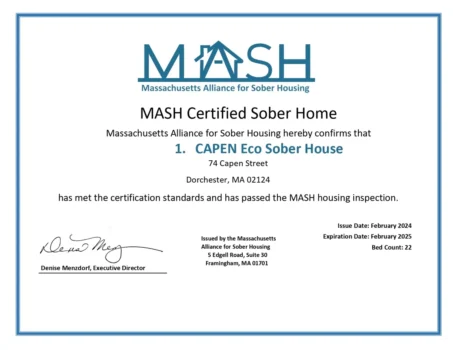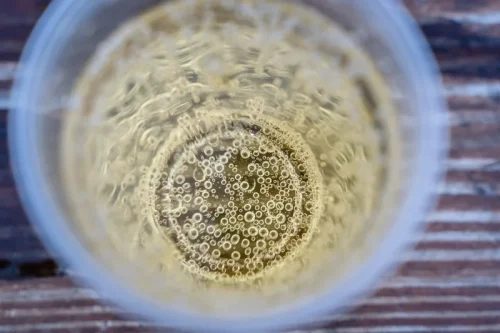
This malnutrition may cause individuals in recovery to develop a preference for sweet foods. Understanding the physiological factors at play can help recovering alcoholics navigate their sugar cravings more effectively. By adopting strategies to stabilize blood sugar levels and promote neurotransmitter balance, individuals can manage cravings and support their overall recovery journey. It’s important to work with healthcare professionals and nutritionists to develop personalized plans that address individual needs and promote long-term well-being. Understanding why recovering alcoholics crave sugar involves delving into the complex interplay of biological and psychological factors. Studies have shown that excessive sugar intake can lead to behaviors similar to drug addiction, suggesting a strong link between the two.
What should I do if I experience a strong craving for sugar?
- Many processed and diet foods contain large amounts of sugar and carbohydrates to compensate for the lack of flavor and fat, sending you on a roller coaster ride of sugar highs and lows, Zona warns.
- This can create a cycle of craving and consuming sugary foods or beverages.
- The study, which focuses on people with prediabetes, is a controlled feeding trial, meaning participants only eat the meals that NIH provides them, and nothing more.
- The idea was to help consumers differentiate between foods with naturally occurring sugars, like fruit and plain Greek yogurt, and foods that had sugars mixed in.
- This can create a cycle where individuals seek sugar to temporarily boost their mood and alleviate withdrawal symptoms from alcohol.
- They can also seek medical support if they believe they may have alcohol use disorder.
- People often change their diets after they start developing diabetes or putting on weight, Malik said.
Recovering from alcohol addiction involves more than just physical healing; it also requires attention to psychological and emotional well-being. Seeking support from therapists, counselors, or support groups can provide valuable guidance and assistance in managing cravings. Alcohol addiction can take a toll on the body, leading to the depletion of essential nutrients. Chronic alcohol consumption interferes with the body’s ability to absorb and utilize nutrients effectively.
- In the realm of recovery, some have found that substituting sweets for substances can help improve mood and soothe cravings.
- Many alcoholic beverages and drinks contain moderate to high amounts of carbohydrates, which consist of simple sugars (ie sucrose and fructose) and complex carbohydrates.
- Including foods high in fiber, rich in protein, and loaded with healthy fats can keep you satisfied for longer and hence, you are less likely to be drawn towards sugary substances.
- Now dubbed Alcohol Use Disorder (AUD), this type of addiction differs little from the others in these regards.
Sugar Addiction and Alcoholism Link
- Avoiding these foods and opting for whole, unprocessed foods instead can help reduce sugar cravings.
- Alcohol initially boosts dopamine levels, which produces a feeling of relaxation and happiness.
- Consuming alcohol can disrupt blood sugar levels, leading to an increased desire for sugar to rebalance these levels.
Initially, alcohol raises blood sugar levels, but after processing, levels drop dramatically. This is because alcohol increases insulin secretion and prevents the liver from releasing glucose, making heavy drinkers susceptible to hypoglycemia. When blood sugar levels drop, the body craves a quick energy source, leading to sugar cravings as a means to boost glucose levels. These spikes and crashes make sugar cravings incredibly common in early recovery from alcohol use disorder. People who abruptly stop drinking may lose a significant source of their calorie intake and have disrupted their body’s blood sugar regulation. That said, addiction might co-occur with other conditions that affect appetite.
Can Cognitive Behavioral Therapy Help Treat an Alcohol Addiction?

During this time, the brain transitions from incentive salience to habit formation. If a person repeats drinking patterns, it can cause the brain to shift control over the https://ecosoberhouse.com/article/how-long-do-amphetamines-stay-in-your-system/ actions involved with drinking. Incentive salience is when the motivation for a reward is driven by a person’s physiological state, learned cues, and reward associations.

How Long Does Addiction Recovery Take?
An SUD might co-occur with an AUD, or another mental health disorder that brings about sugar cravings. That is to say, sugar cravings may be present for other reasons why do alcoholics crave sugar as well – but typically accompany alcohol addiction. Therefore, it’s always best to consult your treatment providers about it so they can inform you on what to expect.

By addressing the psychological factors related to alcohol use disorder and sugar cravings, individuals can develop healthier ways to regulate their emotions and cope with stress. Support and treatment options are available to guide individuals through this process and help them break free from the cycle of alcohol use disorder and sugar cravings. It activates the reward centers in the brain, releasing dopamine and providing a momentary boost in mood. However, this temporary relief can lead to a cycle of cravings and consumption, perpetuating the connection between alcohol use disorder and sugar cravings. When alcohol consumption is reduced or eliminated, the brain’s reward system may become dysregulated, leading to a decrease in dopamine levels. To compensate for the reduced dopamine release, individuals with alcohol use disorder may turn to sugar as a substitute to stimulate the reward system and experience a similar pleasurable response.
To address nutrient depletion, individuals with alcohol use disorder should focus on adopting a well-balanced diet that includes a variety of nutrient-rich foods. Incorporating foods high in vitamins and minerals can help replenish nutrient stores and reduce sugar cravings. Seeking guidance from a healthcare professional or a registered dietitian can provide personalized recommendations for a nutrient-dense diet. Understanding the connection between alcohol use disorder and sugar cravings requires exploring the biological factors at play. Two key biological factors that contribute to the development of sugar cravings in individuals with alcohol use disorder are the dopamine and reward system and neurotransmitter imbalance. It’s important to note that the connection between alcohol use disorder and sugar cravings varies from person to person.
Powerful Help for Opioid Addiction in Kansas
Of particular concern for those in recovery is that a replacement addiction can hinder the process of getting and staying sober and potentially lead to a relapse. Nutrient deficiencies and blood sugar issues trigger cravings for high-sugar foods like chocolate, candy, or other sweet treats. People with severe alcohol use disorders can consume more than 50% of their calorie intake through alcohol alone¹, leaving them at significant risk for nutrient deficiency. Because your liver spends so much time processing the alcohol, other nutrient absorption is delayed.